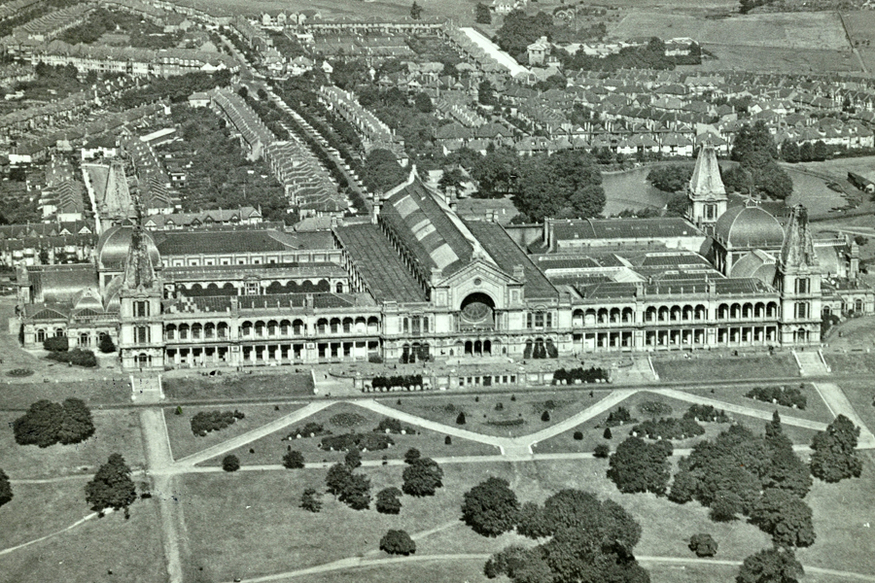
What do you think of when someone mentions Alexandra Palace? The panoramic views over the rest of London? The fantastic time you had skating on the ice rink? That incredible LCD Soundsystem gig that gave you tinnitus for a week? Between 1915 and 1919, Alexandra Palace meant something else; Internment camp.
The day after Britain declared war on Germany, the government passed the Aliens Restriction Act. It required German — and other enemy nations' — foreign nationals to register with the police, so they could either be deported or interned. Internment was aimed at men of military age, who were moved to holding camps while more permanent internment camps were set up. One such camp was at Alexandra Palace, where 3000 German, Austrian and Hungarian men were held.

The story isn't completely bleak, however. To deal with the strain of life incarcerated, the men formed various clubs and societies. They had a football club, gardening society, amateur theatrical society and a concert society. Some men in the camp were talented musicians performing in London before the war, and under the direction of Anton Wüst, they formed an orchestra of up to 40 men.
The programme below is for one of their concerts: Bunter Sensations Abend is German for 'an evening of colourful sensations', and this was their Christmas concert. If only the illustrations on the image didn't look so gloomy, but its hard to blame them considering their situation.

This next programme is for Wüst's benefit evening, which looks a little more makeshift than the previous one. The orchestra usually performed music ranging from Haydn to Beethoven, but occasionally they performed some of Wüst's own compositions. They never performed outside of the camp; it was purely for the enjoyment of their fellow prisoners, a way to lift their spirits in joyless times.

Wüst himself, had been employed as an assistant conductor at the Hippodrome Theatre before war broke out. There aren't many records left regarding other band members nor other detainees — again, war is to blame. The Prisoner of War Information Bureau was destroyed by bombing in 1940.

After the war finished, the men were released from the camp, but they never experienced quite the same levels of freedom they had enjoyed pre-wartime. They needed a licence to remain in the country and were barred from certain jobs.
With thanks to London Metropolitan Archives for use of documents from their collections. You can find out more about visiting LMA here and also search Collage: LMA’s online picture archive.




